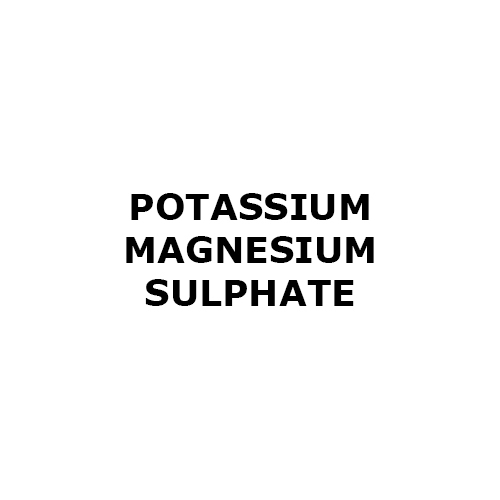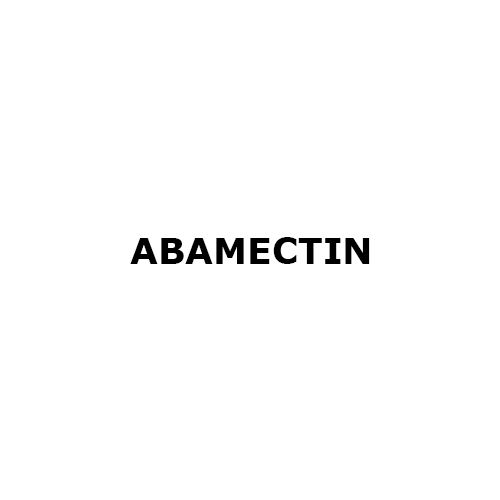- Home Page
- Company Profile
-
Our Products
- Fungicides
- Tyler Fungicide
- Lime Sulphur 22% SC
- Carbendazim 46.27% SC
- Sulphur 40% SC
- Shonar Fungicide
- Hoodie Fungicide
- Discord Fungicides
- Thiophanate Methyl 70% WG
- Tebuconazole 2% DS
- Tunus Fungicide
- Shedo Agriculture Fungicide
- Letis Fungicide
- IMPAXO Fungicides
- Mabira fungicides
- Propiconazole 25% E.C
- Tebuconazole 38.39% SC
- Tacos Fungicide
- Heptan Fungicides
- Corbett Fungicides
- Azocet Fungicides
- Marvel Fungicides
- Sahaz Fungicide
- Sulphur 55.16% SC
- Julam Fungicide
- Mobis Fungicides
- Chylock Fungicide
- Helicen Fungicides
- Shedo Fungicides
- Herbicides
- Scarf Herbicides
- Quizal Cross Herbicides
- Joom Agriculture Herbicides
- Scottish Herbicides
- Pretilachlor 50% EC
- Panic Herbicides
- Tiplet Herbicide
- Zapin Herbicide
- Oxygel Agriculture Herbicides
- Giles Agriculture Herbicide
- Zapin Herbicides
- Toronto Herbicide
- Jal Grip Herbicides
- One Pis Herbicide
- Aentis Herbicide
- Pixa herbicide
- Insecticides
- 0.15 Percent EC Neem Seed Kernel Based Containing Azadirachtin Insecticide
- Thailem Insecticide
- Canva Insecticide
- Brina insecticide
- Kedon Insecticides
- SPYD Insecticides
- Punga Insecticide
- Vasko Insecticide
- 30.5 Percent SC Imidacloprid Insecticide
- Lavta Insecticides
- Tonga Insecticide
- Jugar Insecticide
- Cartish Insecticides
- 50 Percent EC Chlorpyrilos Insecticide
- Forak Insecticide
- 48 Percent FS Imidacloprid Insecticide
- Carter Insecticides
- Wales Insecticides
- 0.3 Percent Wlw Neem kernel Based EC Containing Azadirachtin Insecticide
- Filix Insecticide
- Dross Insecticide
- Kitty Insecticide
- Twistify Insecticide
- 17.8 Percent SL Imidacloprid Insecticide
- 6 Percent Imidaclorpid And 4 Percent Lambda Cyhalothrin Insecticide
- Puffin Insecticide
- Chapo Insecticide
- Devas Insecticides
- Cripta Insecticide
- Civic Insecticides
- Firok-2 Insecticide
- Tranzex Insecticides
- 75 Percent SG Thamethoxam Insecticide
- Tumba Insecticide
- 10 Percent EC Bifenthrin Insecticide
- Mafiya insecticides
- 5 Percent SC Fipronil Insecticide
- Acephate 75% SP
- Lonar Insecticide
- Kipsy Insecticides
- Rombi Insecticides
- 0.03 Percent EC Neem Oil Based Containing Azadirachtin Insecticide
- Fittest Insecticides
- 4.9 Percent CS Lambda-Cyhalothrin Insecticide
- FIdji Insecticides
- Costa Insecticide
- Fire Top Insecticide
- Comics Insecticide
- 5 Percent E.C Lambdacyhalothrin Insecticide
- Andix Insecticide
- Crick Insecticides
- Costy Insecticide
- Thiamethoxam 75% SG Insecticide
- Chlorontraniliprole 18.5% SC
- Furrys Insecticides
- Crook Insecticides
- DJ3 Insecticide
- 36 Percent SL Monocrotophos Insecticide
- Dinop Insecticide
- Pairet Insecticide
- Mix Micro Nutrient Fertilizers
- Water Soluble Fertilizer
- MKP 00 52 34 Fertilizer
- Ziddma MKP 00:52:34 fertilizer
- Ziddma MAP 12:61:00 Fertilizers
- NPK 19 19 19 Fertilizer
- Calcium Nitrate -Boron
- Calcium Nitrate Fertilizer
- Magnesium Sulphate Fertilizer
- MAP 12:61:00 Fertilizer
- NPK 13: 40: 13 Fertilizer
- Potassium Nitrate 13:00:45 fertilizer
- SOP 00:00:50 Fertilizer
- Ammonium Sulphate N-20.5% S-23% Fertilizer
- Ziddma NPK 19:19:19 Fertilizer
- Ziddma NPK 13:40:13 Fertilizer
- Ziddma Calcium Nitrate Fertilizer
- Ziddma Potassium Nitrate 13:00:45 Fertilizer
- Ziddma SOP 00 : 00 : 52 Fertilizers
- Ziddma Magnesium Sulphate MgSo4 7H2O Fertilizers
- Fertilizers
- Plant Growth Promoters
- Bio Products
- Pesticides
- Agriculture Chemicals
- Calcium Nitrate
- Boron Chemical
- Abamectin Chemical
- Deltamethrin Chemical
- Mono Zinc Sulphate
- Cymoxanil Chemcial
- Carboxin Chemical
- Azoxystrobin Chemical
- Validamycin Chemical
- Butachlor Chemical
- Triacontanol Chemcial
- Quizalofop Chemcial
- NPK Fertilizer 13 40 13
- Potassium Magnesium Sulphate
- Zinc Sulphate
- Magnesium Sulphate
- Phosphoric Acid
- Zinc Sulphate Heptahydrate
- Ethion Chemical
- Tricyclazole Chemical
- Potassium Nitrate
- Potassium Sulphate
- Fungicides
- Gallery
- Our Achievement
- Contact Us

Potassium Magnesium Sulphate
500.00 - 2500.00 INR/Kilograms
Product Details:
- Chemical Name Other
- Click to view more
X
Potassium Magnesium Sulphate Price And Quantity
- 500.00 - 2500.00 INR/Kilograms
- 1000 Kilograms
Potassium Magnesium Sulphate Product Specifications
- Other
Potassium Magnesium Sulphate Trade Information
- 1000 Kilograms Per Day
- 7 Days
Product Description
Potassium magnesium sulfate, also known as Potassium magnesium sulfate or potassium magnesium sulfate hexahydrate, is a mineral compound with the chemical formula K2Mg2(SO4)3. It is a naturally occurring double salt mineral composed of potassium, magnesium, and sulfate ions. Potassium magnesium sulfate is commonly found in evaporite deposits and is mined as a source of potassium and magnesium fertilizers.
Potassium Magnesium Sulphate Properties:
1. Chemical Composition: The chemical formula for potassium magnesium sulfate is K2Mg2(SO4)3. It consists of potassium (K), magnesium (Mg), sulfur (S), and oxygen (O) ions.
2. Appearance: Potassium magnesium sulfate typically occurs as colorless to white crystals or as a white, granular powder. It may also have a slightly yellowish or pinkish tint due to impurities.
3. Solubility: Potassium magnesium sulfate is sparingly soluble in water. It dissolves very slowly in cold water but more readily in hot water. However, its solubility is significantly lower compared to other common fertilizer salts like potassium sulfate or magnesium sulfate.
4. Density: The density of Potassium magnesium sulfate varies depending on factors such as temperature and crystal structure. Generally, it has a density ranging from about 2.8 to 2.9 grams per cubic centimeter (g/cm3).
5. Melting Point: Potassium magnesium sulfate does not have a well-defined melting point. Instead, it decomposes upon heating, releasing sulfur dioxide and leaving behind residues of potassium and magnesium sulfates.
6. pH: When dissolved in water, Potassium magnesium sulfate does not significantly affect the pH of the solution. It is considered neutral with a pH close to 7.
7. Nutrient Content: Potassium magnesium sulfate is valued as a fertilizer because it provides essential nutrients to plants. It contains significant amounts of potassium (K), magnesium (Mg), and sulfur (S), which are important for plant growth and development.
8. Hygroscopicity: Potassium magnesium sulfate has low hygroscopicity, meaning it does not readily absorb moisture from the atmosphere, which can be advantageous for storage and handling.
Potassium Magnesium Sulphate Applications:
1. Fertilizer: Potassium magnesium sulfate is primarily used as a fertilizer in agriculture. It is valued for its high potassium (K), magnesium (Mg), and sulfur (S) content, which are essential nutrients for plant growth and development. It is especially beneficial for crops that require balanced levels of potassium and magnesium, such as fruits, vegetables, and legumes. Potassium magnesium sulfate provides a slow-release source of these nutrients, promoting steady and sustained plant growth over time.
2. Soil Amendment: Potassium magnesium sulfate can be applied directly to soil as a soil amendment to improve its fertility. By supplying potassium, magnesium, and sulfur, it helps to replenish depleted soil nutrients and enhance soil structure and fertility, leading to better plant growth and higher yields.
3. Crop Specific Applications: Certain crops have specific nutrient requirements, and Potassium magnesium sulfate can be particularly useful for meeting these needs. For example, crops like potatoes, tomatoes, peppers, and citrus fruits have high potassium and magnesium requirements during various growth stages. Potassium magnesium sulfate can be applied either as a base fertilizer or as a top dressing to meet these crop-specific nutrient demands.
4. Organic Farming: Potassium magnesium sulfate is often preferred in organic farming practices as it is a naturally occurring mineral fertilizer. It is compliant with organic farming standards and regulations, making it a suitable choice for organic growers who prioritize sustainability and environmental stewardship.
5. Greenhouse and Container Gardening: Potassium magnesium sulfate is also used in greenhouse and container gardening setups. Its slow-release properties make it ideal for potted plants and greenhouse crops, providing a consistent supply of nutrients to support healthy growth without the risk of nutrient leaching.
6. Specialty Crops: Potassium magnesium sulfate may be particularly beneficial for specialty crops with specific nutrient requirements or sensitive to imbalances in soil nutrients. These could include high-value crops like herbs, spices, or medicinal plants where optimal nutrient levels are crucial for quality and yield.
Potassium Magnesium Sulphate FAQ:
Q. What is potassium magnesium sulfate (Potassium magnesium sulfate)?
Ans: Potassium magnesium sulfate, commonly known as Potassium magnesium sulfate, is a naturally occurring mineral fertilizer that contains potassium (K), magnesium (Mg), and sulfur (S). It has the chemical formula K2Mg2(SO4)3.
Q. What are the benefits of using Potassium magnesium sulfate as a fertilizer?
Ans: Potassium magnesium sulfate provides essential nutrients to plants, including potassium, magnesium, and sulfur, which are crucial for plant growth, flowering, and fruiting. Its slow-release properties ensure a steady supply of nutrients over time, promoting balanced growth and higher yields.
Q. How is Potassium magnesium sulfate applied in agriculture?
Ans: Potassium magnesium sulfate can be applied to soil either as a base fertilizer before planting or as a top dressing during the growing season. It can also be dissolved in water and applied as a liquid fertilizer. The application rates depend on factors such as soil type, crop type, and nutrient requirements.
Q. Is Potassium magnesium sulfate suitable for organic farming?
Ans: Yes, Potassium magnesium sulfate is commonly used in organic farming practices as it is a naturally occurring mineral fertilizer. It is compliant with organic farming standards and regulations, making it a preferred choice for organic growers who prioritize sustainability and environmental stewardship.
Q. What crops benefit from Potassium magnesium sulfate application?
Ans: Potassium magnesium sulfate is beneficial for a wide range of crops, including fruits, vegetables, legumes, grains, and specialty crops. It is particularly valuable for crops that have high potassium and magnesium requirements, such as tomatoes, potatoes, peppers, citrus fruits, and leafy greens.
Q. Is Potassium magnesium sulfate soluble in water?
Ans: Potassium magnesium sulfate is sparingly soluble in water. It dissolves very slowly in cold water but more readily in hot water. However, its solubility is significantly lower compared to other common fertilizer salts like potassium sulfate or magnesium sulfate.
Q. How does Potassium magnesium sulfate affect soil pH?
Ans: Potassium magnesium sulfate has a neutral effect on soil pH when applied in moderate amounts. It does not significantly alter the pH of the soil, making it suitable for use in a wide range of soil types without causing pH imbalances.
Q. Where can Potassium magnesium sulfate be purchased?
Ans: Potassium magnesium sulfate is available for purchase at agricultural supply stores, garden centers, and online retailers. It is typically sold in granular or powdered form, in bags or bulk quantities, for use in agricultural and gardening applications.
Enter Buying Requirement Details





